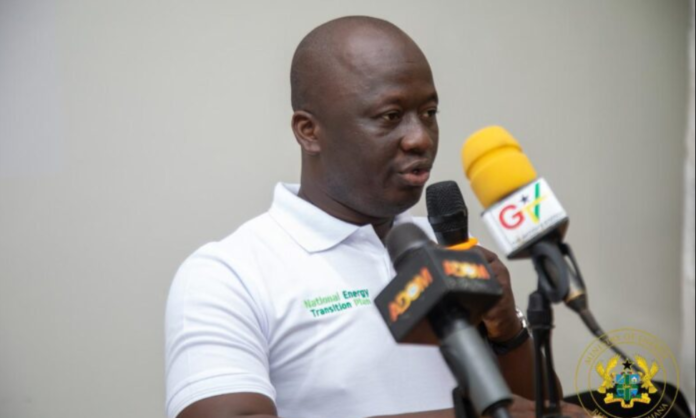The Ministry of Transport has said it is working assiduously to introduce the first-ever electric and gas-powered buses for public transport in the country.
Mr. Frederick Adorn Obeng, the Deputy Minister for Transport, who disclosed this, said the Ministry was currently developing a mobility policy to guide the deployment and scale-up of electric vehicles in the country.
According to him, the road transport services’ focus was mainly on the technological shift away from petrol and diesel fuels to a finer alternative to reduce carbon emissions.
Mr. Obeng was speaking to the Ghana News Agency (GNA) on the side-lines of a stakeholders’ engagement on the National Energy Transition Plan at the National House of Chiefs at Manhyia, in Kumasi.
The forum under the theme “Moving Ghana towards a Net-Zero Future,” was aimed at encouraging Chiefs in the country to be advocates for creating awareness of the effects of human activities believed by some to be causing global warming.
The National Energy Transition Forum sought to, among other things, solicit stakeholders’ input towards the implementation of a harmonious national energy policy that is in sync with the Paris Accord, which aims at achieving a net-zero carbon emission.
According to the Deputy Minister, the transport sector was vital to a robust economy and key to ensuring social cohesion.
He said everyday mobility and distribution of goods and services were made possible through transportation.
“The transport sector is vital to the functioning of the Ghanaian economy and is key to ensuring social cohesion. This is because the distribution of goods and services across the country are made possible through transport,” he said.
The Deputy Minister said depending on the technology adopted, there could be a direct and indirect impact on the natural environment, adding that, “our development is underpinned largely by the use of fossil fuels from power generations to our communities.”
The majority of Ghanaians depend on the use of small to medium size vehicles either petrol or diesel engines, he said.
According to him, data available at the Driver and Vehicle Licensing Authority showed that of 2.8 million registered vehicles in 2021, 72 per cent were powered by petrol engines, 27 per cent by diesel and less than one per cent by LPG and other sources of energy.
This, he said, means the government ought to have more campaigns on the need to move from the use of fossil fuels to the use of more efficient energy sources.
Mr. Obeng revealed that most advanced countries had allegedly set a target to end the production of fossil fuel-based vehicles by 2030 in tandem with the goal of ensuring a net-zero carbon emission.
He said the objectives of the plan were to increase natural gas-based electricity generation, increase the share of modern renewable energy (wind, solar, small hydro, waste to energy etc.), and promote clean energy usage.

